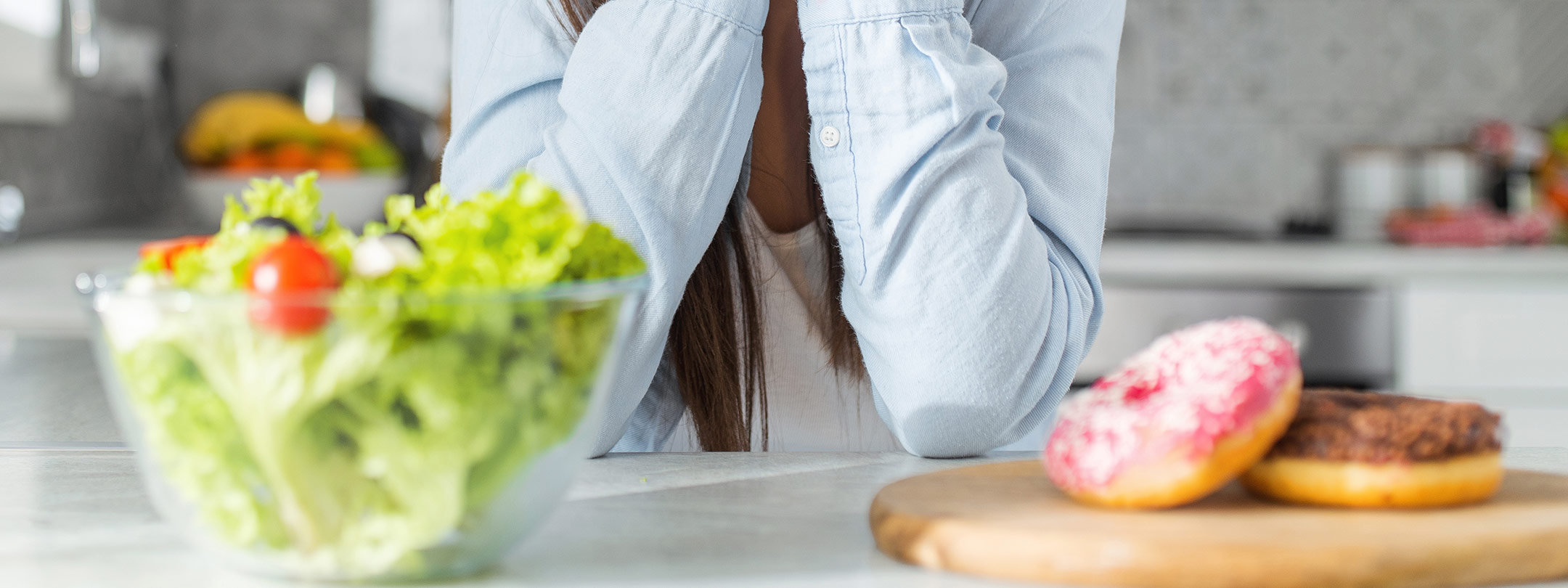Do you have big plans for changing your diet and exercise routine? Or maybe you're looking for a quick weight-loss fix that has lasting results. If so, don't let your goals get polluted with these common diet and exercise misconceptions.
DIETS ARE HARD: MYTH
Dieting doesn't have to mean short-term suffering. Your diet, or what you eat, is not temporary. It’s what you choose to put into your body every day for the rest of your life.
There are easy ways to kick your eating habits back into shape. Be thoughtful about your food choices. It could be as simple as eating fewer calories or replacing an unhealthy snack with a healthier one.
EXERCISE IS MORE IMPORTANT THAN FOOD TO LOSE WEIGHT: MYTH
No amount of exercise can make up for a bad diet. Exercise doesn’t earn you a brownie. While exercise is the most important habit to improve overall health, it’s only responsible for 20 to 30 percent of a person's weight. Look at it this way: 70 to 80% of weight loss will occur based on what you're preparing in the kitchen, and 20 to 30% will be based on your workouts in the gym.
SOME FOODS ARE FORBIDDEN: MYTH
If you want a donut for breakfast, eat a donut for breakfast—just be mindful of what you're eating the rest of the day (think fruits, vegetables, and whole grains). We all like to indulge in our favorite treats, and creating a list of forbidden foods just sets you up for failure when you give in to the craving. Ask yourself, “Is this worth the calories? Figure out the smallest amount you could eat to satisfy the craving.
WEIGHT LOSS COMES IN A BOTTLE: MYTH
There are many products out there claiming they’re the next big weight-loss discovery. Two professors of complementary medicine, Max Pittler and Edzard Erst, (2004) published a systematic review of the most commonly touted natural weight-loss aids and products. They looked at chitosan, chromium picolinate, Ephedra sinica, Garcinia cambogia, glucomannan, guar gum, hydroxymethylbutyrate, plantago psyllium, pyruvate, yerba maté, and yohimbe. Their conclusion was straightforward:
"The evidence for most dietary supplements as aids in reducing body weight is not convincing. None of the viewed dietary supplements can be recommended for over-the-counter use". Don't count on the next miracle drug to solve your poor diet and lack of exercise.
I NEED TO BE MY “IDEAL” WEIGHT: MYTH
We’re human beings who don’t fit into the same mold. Good health can’t be generalized into body fat percentage, waist circumference, body mass index, and weight. They're good guidelines, but numbers don’t reflect reality.
There are many variables that can affect our weight—from genetics to stress. We can sabotage ourselves by not exercising, eating poorly, and losing sleep, but there are many things out of our control. Your ideal weight shouldn’t be a number—it should be whatever weight helps you live the healthiest life possible.
LOTS OF CARDIO FOR WEIGHT LOSS: MYTH
Yes, cardio or aerobic exercise do burn a lot of calories while you’re exercising. But what about when you’re not exercising? If you increase your muscle mass, your overall metabolism increases and you’ll burn more calories throughout the day during your normal daily activities. All of your muscle fibers need calories to stay alive!
Muscle loss starts to happen in your thirties and decreases 3 to 5% per decade. After the age of 50, it can be upwards of 1 to 2% per year. Muscle loss can have a negative effect on your metabolism and regular strength training is the best way to prevent it.
For information on our medical and dental plans, visit selecthealth.org/plans.
Related Articles



